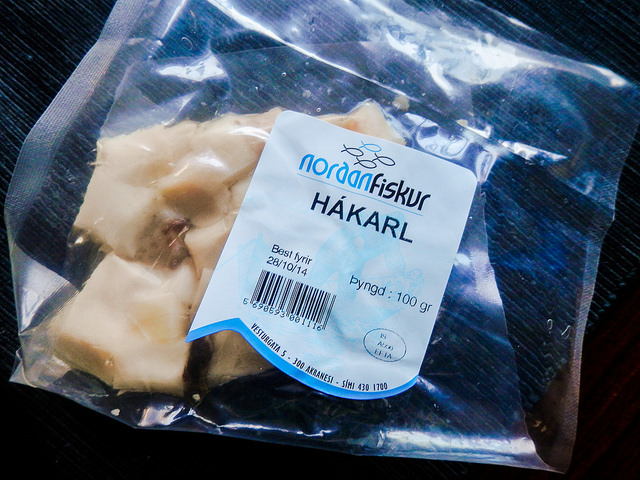An area of health & safety where people seem happy to take risks is our food. Whether it’s dangerous delicacies, lukewarm leftovers or not waiting for things to defrost, many people seem willing to chance a dodgy tummy for a quick fix of food. Next time your stomach gets in the way of your brain, remember these 12 occasionally deadly foods, and reconsider the risks.
Mochi
This popular Japanese treat may seem innocent, but it has a dark side. The pounded rice used to make these sweet & savoury cakes is so glutinous that it has to be chewed thoroughly before swallowing. The tendency to make them larger than bitesized has led to multiple choking deaths every year – usually around the Japanese New Year, between December 31st and January 4th.
Potatoes
Potatoes are a staple diet around the world, both hearty and relatively nutritious. It may be surprising then to hear that consuming them can be deadly. A green potato is a sure sign of glycoalkaloid build-up, which can cause stomach upsets, headaches, nausea and even nervous system damage. Some breeds as more susceptible than others; one tasty cultivar was removed from the market in 1969 due to the health risks.
Fugu
Another Japanese delicacy, fugu – or pufferfish – is world renowned as one of the deadliest foodstuffs in existence. Chefs dealing with fugu train for years in order to distinguish the deadly parts of the animal from the edible ones. Get it wrong, and you’re dealing with a poison 1200 times more potent than cyanide. Or as The Simpsons recounted it: poison, poison, tasty fish.
Rhubarb
Potatoes are a part of the nightshade family, but you aren’t likely to eat their leaves. The same can’t necessarily be said of rhubarb. The tasty vegetable – no, it’s not a fruit – contains a potent acid and laxative in its leaves, potentially causing stomach upsets and even kidney damage. It doesn’t deserve its deadly reputation, however – spinach contains even more of the same acid.
Peanuts and cashews
Peanuts aren’t inherently dangerous, but tell that to the 0.6% of people with some form of peanut allergy. Exposure to peanuts or peanut dust can cause a range of reactions, from watery eyes and a sore throat to anaphylactic shock and death. Cashews and almonds are also dangerous for different reasons, as both must be roasted to remove naturally occuring toxins.
Cherries and apricots
The main toxin removed from almonds is cyanide, a chemical which prevents cells from receiving oxygen. Cyanide is also present in substantial quantities in cherry and apricot seeds, as a deterrent to predators trying to crack them open. The quantities are still relatively small though – and you aren’t likely to be chewing these seeds anyway, as they taste extremely bitter.
Elderberries
The subtle, flowery flavour of elderberries has graced cooking and folk medicines for hundreds of years. Preparing them safely, however, is of paramount importance. Unripe or uncooked berries and all other parts of the plant are high in cyanide compounds. Although ingesting them can cause a severe stomach upset, no deaths have yet been reported.
Castor oil
Castor oil has retained its status as something of a panacea, albeit slightly dubiously. The product of castor beans is added to several pharmaceuticals, consumed as a tincture for constipation, and used in everything from soaps to lubricants to paints. The beans must be carefully processed to eliminate deadly ricin, however, and the plants themselves are also covered in an allergenic substance.
Ackee fruit
Jamaica’s favourite fruit isn’t as well known elsewhere, but its look and taste are highly distinctive. So too is ‘Jamaican vomiting sickness’, a condition ascribed specifically to eating unripe ackee fruit, which can cause hypoglycemia. Imports of the fruit have previously been banned by the United States, although it is currently legal with strict quality control.
Nutmeg
Think nutmeg, and you tend to think of tasty seasonal treats: pumpkin pie, mulled wine and custard tarts. What’s less likely to come to mind is mind-altering drugs. Yes, in large enough quantities, nutmeg is actually a psychoactive substance, and can amplify the effects of other medication. It’s also potentially lethal in higher quantities, and is particularly deadly for dogs.
Kidney beans
Red kidney beans are delicious, but the dangers are fairly well appreciated. Uncooked beans are full of the delightfully named protein Phytohaemagglutinin, which has a less than delightful effect on the body – namely, severe vomiting and diarrhea. The beans should ideally be pre-soaked and boiled for half an hour before serving. Or just buy the canned ones.
Hákarl
Ok, this one isn’t delicious unless you’re from Iceland, and even then it’s a stretch. Up there with snake wine, jellied moose nose and surströmming in the unappetising stakes, this Icelandic speciality involves pressing and fermenting sharks for several months to remove urea. The fermentation process stops it from being toxic, but when your meat is called “the single worst, most disgusting and terrible tasting thing” in the world, it’s probably not worth the risk.

